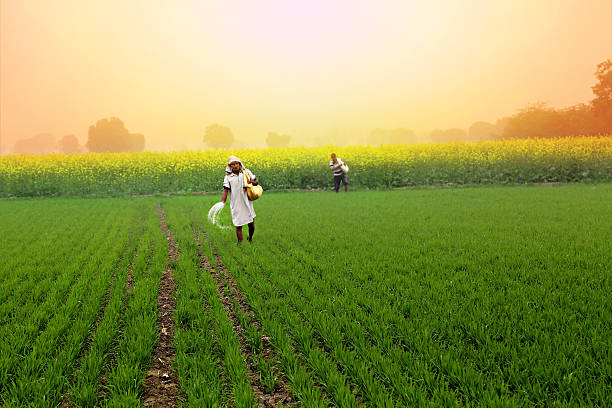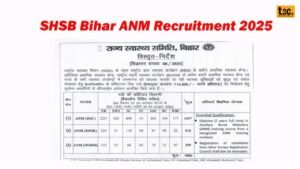Current Affairs April 2025 for UPSC: Week 3

Current Affairs April 2025: Karnataka Online Gaming Regulation, DPDP Act RTI Concerns, Indian Agriculture 2047, IMEC Updates
Boost your competitive exam preparation with our Current Affairs April 2025 guide, covering critical topics for UPSC, SSC, and Banking exams. This month, explore Karnataka’s efforts to regulate online gaming, concerns over the DPDP Act’s impact on RTI, ICAR-NIAP’s vision for Indian agriculture by 2047, and the latest on the India-Middle East-Europe Economic Corridor (IMEC). Download our free PDF and take our quiz to ace your exams!
1. Karnataka Online Gaming Regulation: Exam Insights
Overview
On 14 April 2025, the Karnataka Government formed a committee to draft legislation regulating online betting and gaming, aiming to curb fraudulent practices and support the legal gaming sector, a sunrise industry worth USD 4 billion.
Need for Regulation
- Monitoring: Legalization enhances enforcement, as bans are ineffective (276th Law Commission Report).
- Match-Fixing: Regulation reduces unethical sports betting (Justice Lodha Committee).
- Revenue Potential: Legal betting could generate ₹12,000–19,000 crore annually, reducing black money (FICCI).
Key Concerns
- Games of Skill: Sports betting, like horse racing, involves skill and is protected under Article 19(1)(g) (RMD Chamarbaugawala v. Union of India, 1957).
- Federalism: Gambling is a state subject under Entry 34 of the State List, and central regulation may violate federal principles.
- Tourism: States like Goa permit gambling for tourists, balancing local bans with economic benefits.
Existing Framework
- IT Rules 2021: Self-regulatory bodies verify online real-money games for compliance.
- IT Rules 2023 Amendment: Mandates verification, registration, and transparency for online gaming intermediaries.
- State Laws: Assam Gaming and Betting Act (1970); Goa, Daman and Diu Public Gambling Act (1976).
- Taxation: The Central Goods and Services Tax (Amendment) Act, 2023, imposes a 28% tax on the full face value of deposits in online gaming.
Exam Tip: Focus on the distinction between games of skill and chance, and federalism issues for UPSC polity questions. Explore our Current Affairs for more. Source: Hindustan Times.
2. DPDP Act 2023 and RTI Concerns: Balancing Privacy and Transparency
Overview
On 14 April 2025, over 120 MPs called for repealing Section 44(3) of the Digital Personal Data Protection (DPDP) Act, 2023, arguing it weakens the Right to Information (RTI) Act, 2005 by amending Section 8(1)(j) to prohibit sharing all “personal information,” even if in the public interest.
Key Concerns
- Public Accountability: The vague definition of personal information grants public authorities discretion, hindering scrutiny of officials and policy decisions.
- Privacy vs. Transparency: Both rights are complementary, but a balance is needed (K.S. Puttaswamy Case, 2017).
- Judicial Precedents:
- Justice A.P. Shah Committee (2012): Warned against data protection overriding RTI access.
- Girish Ramchandra Deshpande Case (2012): Prioritized privacy but allowed public interest disclosures.
Recommendations
- Justice BN Srikrishna Committee (2018): Suggests narrow exemptions, only for grave harm (e.g., identity theft).
- Suo-Motu Disclosure: Public entities should proactively share information of public interest (Section 4, RTI Act).
Exam Tip: Note the DPDP Act’s impact on RTI and judicial precedents for UPSC governance questions. Check our Governance Updates for related topics. Source: Vision IAS.
3. Indian Agriculture to 2047: ICAR-NIAP Policy Paper

Overview
On 15 April 2025, the ICAR-National Institute of Agricultural Economics and Policy Research (ICAR-NIAP) released Indian Agriculture to 2047, analyzing the transformation of India’s agri-food system over six decades.
Structural Transformation
- Food Security: From food-insecure to surplus, driven by the Green Revolution, subsidies, and Minimum Support Price (MSP).
- Economic Role: Agriculture’s share in national income fell from 43% to 18%, workforce from 74% to 46% (2022-23).
- Landholdings: Marginal holdings (≤1 hectare) rose from 51% to 68%; average size dropped from 2.28 to 1.08 hectares.
- Diversification: Animal husbandry and fisheries contribute 31% and 7% to agricultural GVA, respectively.
Challenges
- Land Decline: Driven by population growth, urbanization, and industrialization.
- Fertilizer Imbalance: Caused by uneven subsidies, low efficiency, and regional disparities.
- Water Use: Groundwater overexploitation and low irrigation efficiency.
- Climate Change: Reduces productivity growth by 25% due to extreme weather events.
- Others: Weak markets, limited credit access, poor value chains, and cereal-centric policies.
Recommendations
- Water Management: Promote rainwater harvesting, groundwater recharge, and micro-irrigation.
- Reforms: Phase out electricity subsidies, adopt nano-fertilizers, and implement sustainable practices (crop rotation, intercropping).
- Others: Increase agricultural R&D, improve market infrastructure, strengthen value chains, and reform price policies.
Exam Tip: Focus on agriculture’s economic role and climate change impacts for UPSC economy and environment questions. Explore our Updates for more. Source: ICAR-NIAP.
4. IMEC: A Modern-Day Silk Route for Global Trade
Overview
On 17 April 2025, India’s Union Minister of Commerce and Industry described the India-Middle East-Europe Economic Corridor (IMEC) as a modern Silk Route, projecting a 30% reduction in logistics costs and 40% faster transit times, enhancing cross-continental trade.
About IMEC
- Formalized: MoU signed at the G20 Summit 2023 (New Delhi) by India, EU, France, Germany, Italy, Saudi Arabia, UAE, and US.
- Components: Ports, railways, roads, sea lines, electricity cables, hydrogen pipelines, and high-speed data cables connecting India to Europe via the Middle East.
- Ports: Mundra (India), Fujairah (UAE), Haifa (Israel), Piraeus (Greece).
Strategic Importance
- Geostrategic: Bypasses chokepoints like the Suez Canal, enhancing trade resilience amid Houthi blockades.
- Geoeconomic: Fosters economic integration across India, the Middle East, and Europe, boosting trade efficiency.
- Alternative: Counters China’s Belt and Road Initiative (BRI), with Saudi Arabia and UAE diversifying economic ties.
Implementation Strategies
- Collaboration: Engage industry, think tanks, and academia for planning and execution.
- Financing: Use innovative models like long-term IMEC Bonds to fund infrastructure.
- Challenges: Geopolitical tensions (e.g., Gaza war, Israel-Jordan relations) and technical standardization across countries.
Exam Tip: Note IMEC’s geopolitical significance and economic benefits for UPSC IR and economy questions. Source: Drishti IAS.
Additional Resources for Exam Preparation
- Related Topics: Explore our Current Affairs Section for exam-relevant content.
Stay Updated: Subscribe to our newsletter for monthly current affairs updates and exam tips tailored for competitive exams.
Don’t miss out! Learn how student chapters can provide networking opportunities and professional growth. Click to read and join our WhatsApp community!
Not sure which career to choose? Our professionals can guide you. Book your counselling session now on Mytagapp.com!









